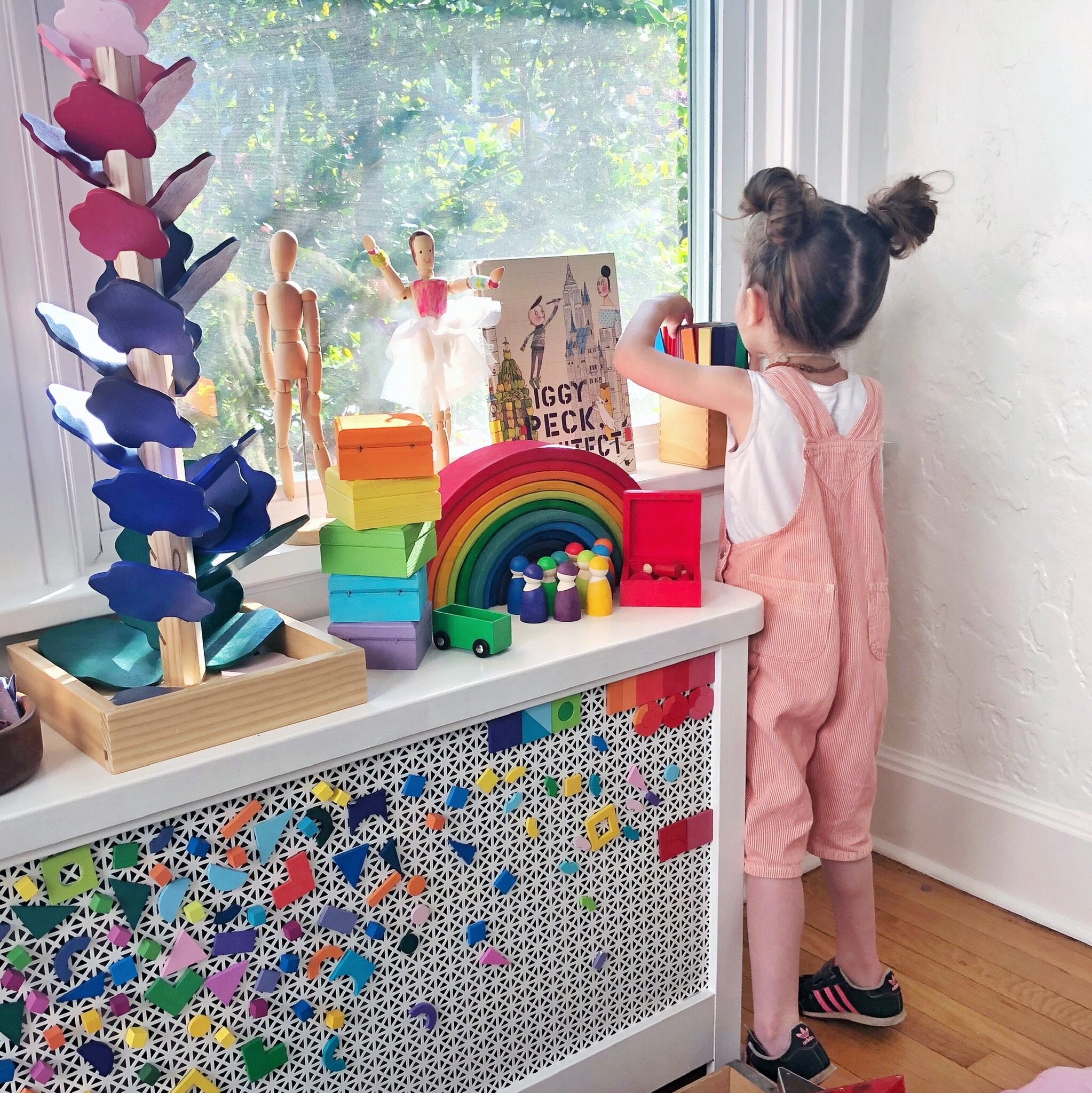Fostering Trust Through Independent Play
/As a fellow parent and a play expert, I've learned that one of the most valuable gifts we can give our children (and ourselves) is the freedom to play independently. This not only sparks their creativity and decision-making skills but also builds their confidence and trust in their own abilities.
Here are six practical tips to help you create an environment that encourages your child to explore and grow through play.
1. Create a Physical Space for Play in the Main Living Area
Setting up a play area in a space where you spend a lot of your time, like the living room, can significantly enhance your child’s sense of security and independence. Children thrive when they feel close to their caregivers, comfortable enough to immerse themselves in the world of pretend and creation. This setup allows them to engage fully in their activities without the constant need to check in with you. Click here for 3 ways to set up your space for independent play.
2. Offer Open-Ended Materials
Provide your child with materials that invite open-ended play. Simple items such as blocks, dolls, art supplies, and natural elements like rocks and twigs are perfect as they don't come with a set of instructions. This encourages your child to use their imagination and make their own choices, fostering independence and trust in their creative abilities. Click here for a list of our playroom favorites.
3. Build Regular Times for Independent Play into Your Routine
Integrate independent playtime into your child’s daily schedule. Start with short periods and gradually increase them. This consistency not only builds a habit but also sends a clear message to your child that you trust them to play by themselves. Establishing these routines reassures your child of your support and shows that you value their ability to engage independently. Click Here to set up daily quiet time and independent play.
4. Be a Play Observer, Not a Director
It’s tempting to jump in and direct your child’s play, but there's great value in stepping back. Observing rather than directing helps your child learn to make decisions and solve problems independently. This can be challenging for us as parents, but it's crucial for building their play confidence. Afterward, get curious about the play session with your child! This will further validate your trust in their choices. Click here for how to give feedback.
5. Encourage Safe Risk-Taking
Allowing your child to take manageable risks enhances their ability to trust themselves. Whether it’s climbing a bit higher on the playground, mixing paint colors in new ways, or trying a slightly challenging game, these experiences are vital for their growth. Such activities help them learn about their own limits and capabilities in a controlled environment. Read more on risk taking here.
6. Celebrate Their Efforts and Choices
Finally, make it a point to acknowledge and celebrate your child's play choices and efforts, no matter the outcome. Showing genuine enthusiasm for their process and discoveries reinforces your trust and appreciation for their independence. This positive reinforcement motivates them to continue exploring and engaging deeply in their play activities. By implementing these strategies, we not only enhance our children's play experience but also deepen our trust in their growing abilities. Remember, the goal isn’t to direct or entertain but to support them in developing the confidence to explore on their own. Happy playing!








Rescuing them from discomfort also robs them of resilience.